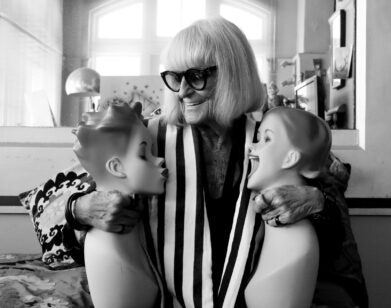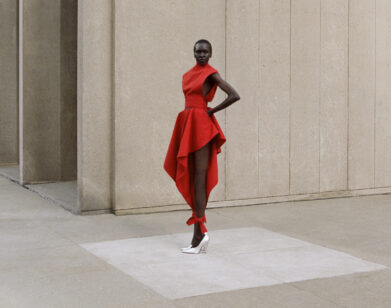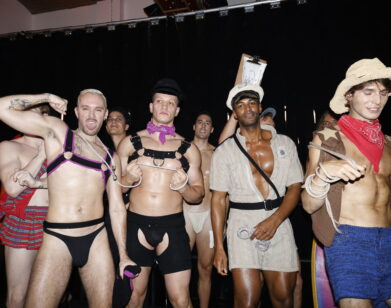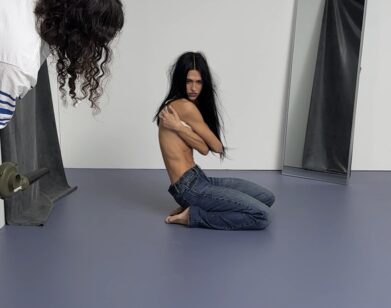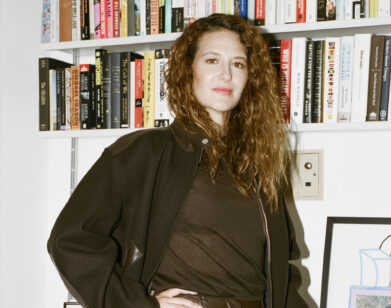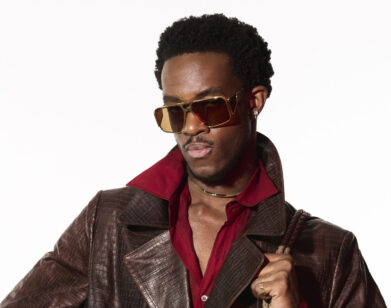NARRATIVE
Charles Melton and Alma Har’el on Trust, Trauma, and Improvisation
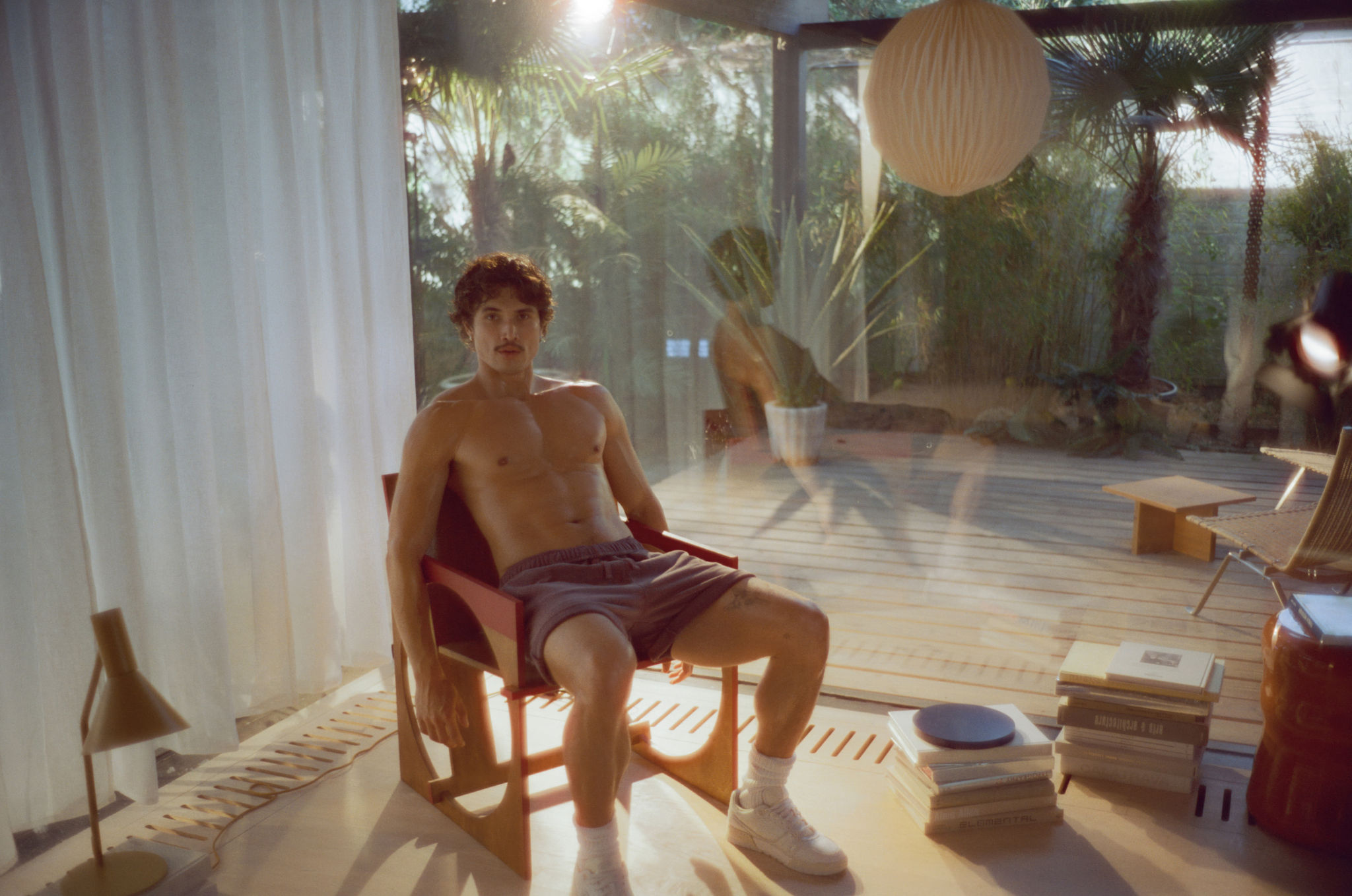
It’s not often that you get to watch a hunky actor like Charles Melton run lines and find his character, so when Alma Har’el set out to write and direct a campy new Coach campaign, she decided to give her viewers a glimpse into the performer’s process—with a hint of humor, of course. Set in a retro house in the Hollywood Hills, “Not Just for Walking” features a determined-yet-paranoid Melton, who has to memorize a script and escape his paparazzi-swarmed home while remaining undetected in his flashy Soho Sneakers. Ahead of it’s release, the actor and filmmaker got on Zoom to discuss their collaborative process, and why it’s important to have a little fun on commercial sets.
———
ALMA HAR’EL: So Charles, am I right to say we met through Natalie [Portman]?
CHARLES MELTON: I think it was through Natalie, but I remember Sammy Birch who wrote May December saying she met you at a party and that you were talking about me and saying the most lovely things. I was like, “Are you serious? Alma knows who I am?”
HAR’EL: Yeah, I was filming Natalie for my show Lady in the Lake and she went right from that to film May December.
MELTON: Yes.
HAR’EL: I’m going to be totally honest, I’d never seen you in anything before May December, even though I knew you’d done some great work. But that film really affected me. I felt you touched such a deep place that I’m dealing with—the loss of innocence. I think a lot of people that grow up with trauma and abuse realize at some point that it’s a journey of a lifetime. I’ve been doing psychedelics since I was 18. I’ve been in therapy. I’ve done every possible thing you could do from art to 12 steps to deal with some of this stuff. There’s something that has to be rewired, and you captured it in such a deep way. I’ll never forget that performance.
MELTON: Go on.
HAR’EL: So yeah, I told you that and somehow we ended up meeting at Atwater Village.
MELTON: And then we were talking about how we had to work with each other and then you had some ideas and I had some ideas
HAR’EL: And you were like, “Well, I’m doing this Coach campaign, it might be in L.A.” Cut to me getting an email that I might be going to South Korea or Denmark. But it was an unusual process because I had to write a script, which I don’t usually do for commercials, but it was so alluring to be able to write something for you.
MELTON: Yeah, it was a nice little sneak peek of what we’ll do in the future together. And it was amazing too because no one’s ever sent me references for a commercial before. We were thinking about old Hollywood, the eighties, seventies, and then you sent me so many videos of different styles of jump roping. You were so invested in every detail. I was like, “I can jump rope. This is easy.” [Laughs] For me coming to set the number one thing is trusting the filmmaker. And I had so much trust in you before we even got there. I felt so comfortable to explore and discover.
HAR’EL: You were like, “It’s a commercial, so are we going to really try to do that?”
MELTON: Yeah. It felt like a short film in a way, and it was pretty brilliant. I mean, you mended the world of art with this beautiful sneaker, the SoHo sneaker. It’s really amazing how we merged the product and who I am—the best versions of myself—to make this.
HAR’EL: It was fun. I feel like I’m allowing myself now to find partners that I can have fun with. I always yearned to go through something cathartic in my work. I thought it would save my life, and it did in many ways. But now, when I do a commercial, I think it’s an opportunity to laugh. What was funny about what we did was how it was kind of like this meta look at how the actor prepares and the paranoid aspects of being an actor and having maybe a paparazzi following you. I scripted the whole thing and there was some dialogue, but really it was this very improvisational exploration of you studying the text, becoming paranoid, and using that. It was a freefall. You were like, “Okay, how deep am I going for a Coach commercial?” I was like, “Let’s just go with it.” I love what you did. It was just so funny and so real at the same time. It felt like both a commercial and a fun improv exercise.
MELTON: It was a great exercise. And then I think it was halfway through the day when you just let the cameras roll and I literally did not know what I was doing. Every process is different. There’s not one construct of this is how an actor learns their lines. It’s constant discovery and that’s what we were doing. It was just fun to live in that without trying to articulate it into words, just by moving and existing. And then how you captured it and how safe you made me feel—for me, that’s the best thing. As an artist, it’s like, who are you willing to discover with? There’s so much in between the lines, there’s so much off the page that happens and you’ve got to have room for that. It’s crazy to me that we did that in one day and shot the campaign photos with Petra [Kleis] at the same time.
HAR’EL: It was such an impossible day on paper and we just kind of sailed through it. It was so cool. I think it’s crazy, like you say how, and I think we captured it in the commercial, how lucky we are that we get to play. I think there’s something about it that makes fun of that, but also shows the serious dive that you take while you do it. At the moment it feels kind of life-threatening,
MELTON: Right. Right.
HAR’EL: And then the lightheartedness of it too, which I really kind of yearn for sometimes. The awareness of what’s going on in the world right now—we get to make believe and I think there’s such importance to doing that. Exploring these things through a commercial was kind of mind-boggling and fun to achieve.
MELTON: I felt like we broke boundaries or I broke my own personal preconceived notions when it comes to doing something with a great brand like Coach. I felt like—
HAR’EL: I mean, it was probably one of my favorite experiences I’ve ever had.
MELTON: Whoa.
HAR’EL: Just from the beginning, I had to go through the bidding process, which I support because triple bid is important for everybody to get a chance at it. But once we got into it, man, it was like I just felt everybody was on the same page. And I knew that would happen because of the work you’ve done with them before with that director—
MELTON: Camille Summers-Valli.
HAR’EL: She’s really, really brilliant. So I think Coach is really killing it. Good for them.
MELTON: Yeah. They’re working with great filmmakers. Okay, I’m going to FaceTime you this weekend if you’re around.
HAR’EL: I am.
MELTON: Alright, I’ll see you.
HAR’EL: Bye. Bye.
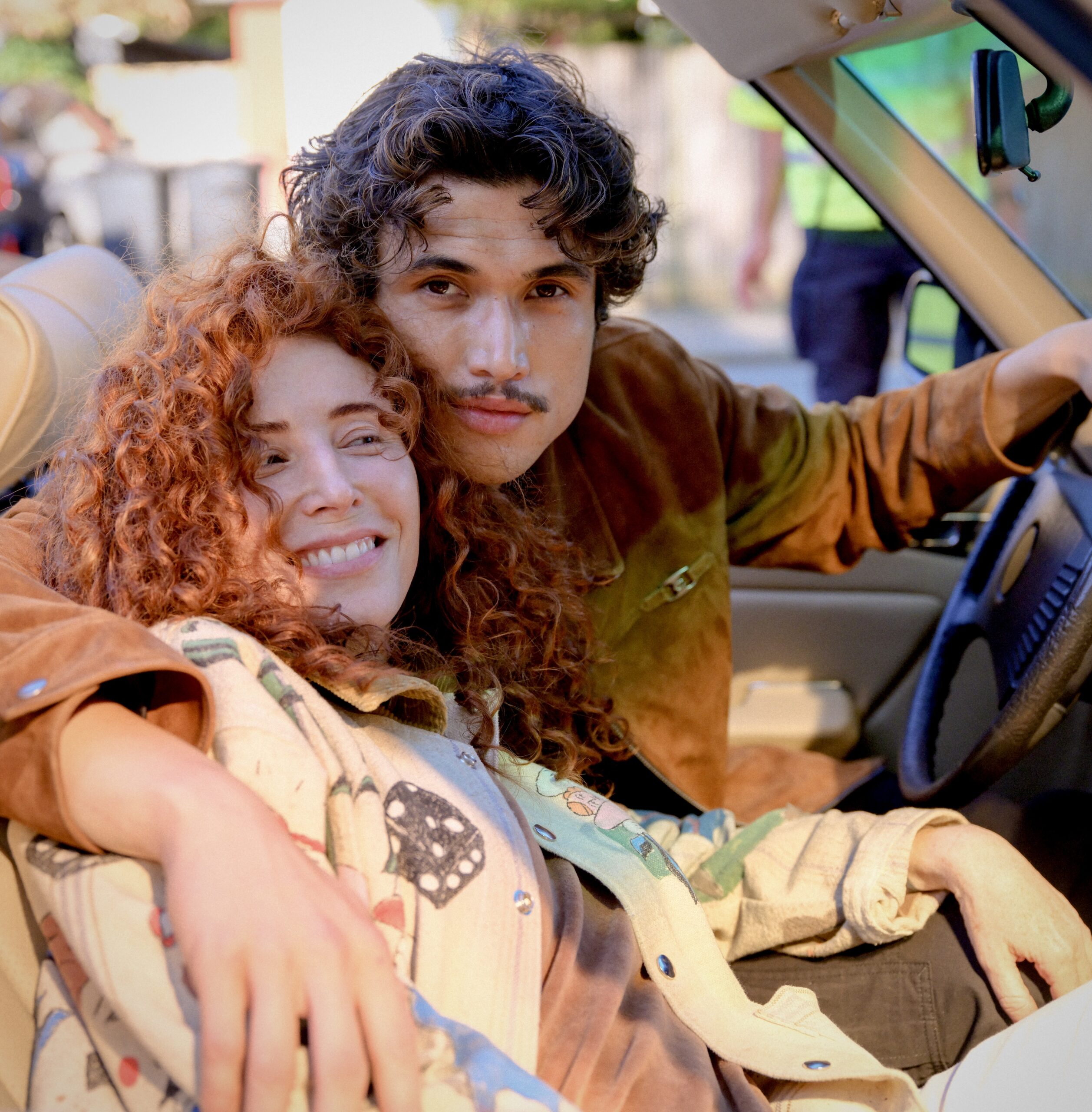
Alma Har’el and Charles Melton, photographed by Gustavo T. Astudillo.

